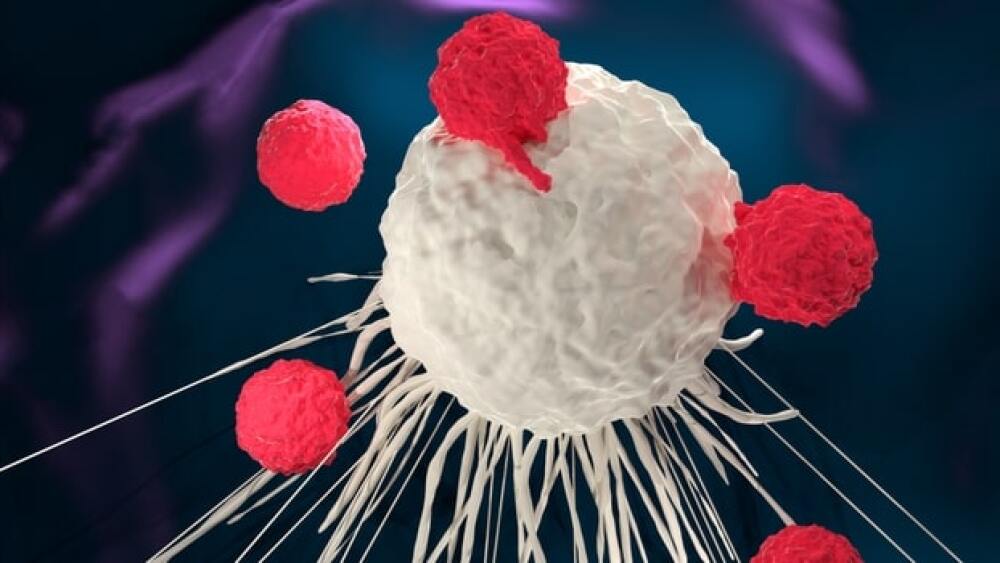Kite, a Gilead company, is building a franchise, not just a brand, on the promise of its CAR-T cell therapies.
Kite, a Gilead company, is building a franchise, not just a brand, on the promise of its CAR-T cell therapies. Despite COVID, it has opened a new manufacturing facility, continued clinical trials and expects to get one or more therapeutic approvals in the coming year, its panel of executives said at October’s BIO Investors’ Forum.
“CAR-T therapies epitomize personalized medicine in a way that no other therapies do,” said Charles Calderaro, SVP and global head of technical operations.
Their success, however, depends as much on manufacturing scale-up as it does on clinical benefit. As autologous therapies, cells are drawn from individuals, re-engineered and reinfused into those same patients in approximately 19 days.
“We’re fortunate to have a robust supply chain in place to ensure business continuity,” Calderaro said.
When the pandemic hit, Kite worked closely with its partners to ensure they could supply the manufacturing facility and with logistics teams to ensure distribution.
“During the first couple of months, borders were closing and flights were canceled,” Calderaro said. “At one point we were considering the possibility of having no commercial flights and had to get approval for our cell products to cross borders.”
At the time, Kite operated only one manufacturing center – in California. During the pandemic a manufacturing facility near Amsterdam was approved, “so European patients could receive the same cycle times as those in the U.S.” Because of that site, Kite is, reputedly, the first company to receive a virtual inspection and then approval. As Christi Shaw, CEO, recalled, “I saw U.S. officials working with EU officials – with the FDA shadowing on a call.”
Inspectors focused on document review. Kite provided more information electronically than usual, and inspectors conducted a conference room review with a Zoom meeting to discuss the details. The facility’s physical inspection was conducted virtually, like virtual tours of homes. Importantly, Kite had invited health authorities into the facility while it was under construction, and Kite already had a good reputation with regulators.
Virtual inspections may remain even after the pandemic subsides, Shaw suggested. Success hinges on having outstanding documentation and a relationship with the regulator that is built on trust.
“What’s important in terms of making virtual inspections succeed is the relationship with the regulator and the credibility of the company, and what they see in virtual meetings,” Shaw said. “A virtual inspection would be difficult without a history with the entity, or if there had been previous issues. Our technical operations has consistently provided product in a reliable way that built trust. Providing information along the way builds trust.”
Now, a third facility is being constructed in Maryland. In it, automation is replacing many of the manual steps.
“Partnering with GE, we’re developing automated solutions for cell therapy that increase the numbers of patients served per square foot and lower costs,” Shaw said.
Partnerships are important to Kite.
“This industry didn’t exist before,” Calderaro pointed out. “We’re reaching out to partners to create solutions that didn’t exist before, such as IT systems to schedule, monitor, and control the vein-to-vein movement of cells and document chain of custody.”
“More than 200 companies, globally, are driving the science of cell therapy forward,” Mert Aktar, VP and head of corporate development, added. While some consider these companies competitors, Kite considers them potential partners.
“Most of those companies don’t want to commercialize their products, so we want to be their partner of choice,” CEO Christi Shaw said.
Before the pandemic, many of the first encounters with potential partners occurred in formal partnering events. Kite attends those events virtually now, and “we’re also setting up Zoom conversations for deep dives into topics,” Aktar said. Consequently, partnering hasn’t slowed. “The fact that we can’t meet in person hasn’t impeded us.”
That’s important, because collaborations help drive innovation. For example, Kite’s 2020 collaboration with oNKo-innate allows Kite to leverage that company’s expertise in tumor cell biology to advance immuno-oncology therapeutics. Because oNKo-innate focuses on natural killer cells, teaming up could yield complementary approaches to Kite’s T-cell mediated therapies.
Before that, a collaboration with Sangamo Therapeutics granted Kite an exclusive license to that company’s zinc finger nuclease (ZFN) gene editing technology for allogeneic and autologous cell therapy programs.
Kite also works with academic investigators to answer fundamental questions and to raise questions and share insights the company hasn’t considered. Patient organizations also are valuable, Shaw added.
“We work with patient societies so patients understand they have options before entering palliative care,” Shaw said.
Some of those collaborations involve clinical trials. Among the many trials underway and programs preparing for IND filings, Ken Takeshita, SVP and global head of clinical development, noted two in particular.
“We have two Phase I trials in solid tumors. KITE-439 targets the E7 viral antigen, which is triggered by the HPV virus. This is a T-cell receptor-based therapy developed in partnership with the National Cancer Institute. The phase I trial is seeing partial responses, so we believe we’re heading in the right direction.
“In the other solid tumor program, KITE-718 targets the MAGE A3/A6 proteins, which are expressed during normal embryogenesis,” Takeshita continued. The proteins turn off in normal cells but not in cancerous cells. This is very early in the process, but we are seeing partial responses so far.”
During the pandemic, “We did not close any of our clinical trials,” Takeshita said. “We recognized that participation is quite important as part of a patient’s medical therapy.” Many of the trial sites were inundated with COVID-19 patients, which affected trial participants’ willingness to visit those sites or enroll in trials. “Most of those difficulties are over now,” and clinical trial activities resemble those before the pandemic began. Telemedicine and remote monitoring, however, will continue to play important roles.






